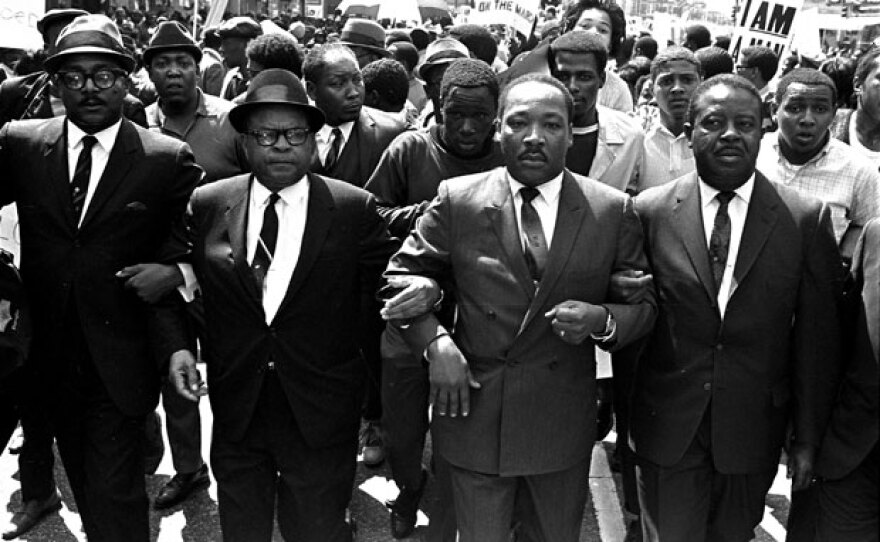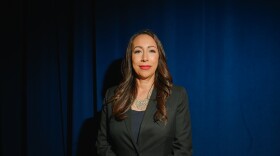As we reflect on the legacy of Dr. Martin Luther King Jr. it’s important to look at the Civil Rights Movement of the '50s and '60s and how it shapes the Black Lives Matter movement now.
Rev. James Lawson Jr., who marched alongside Dr. King is often referred to as "the mind of the movement." Dr. King called him "the leading theorist and strategist of nonviolence in the world." Today he remains a staunch defender of human rights as a lecturer at UCLA where he teaches about nonviolent social movements.
He joined Midday Edition Monday to talk about the achievements of the Civil Rights Movement and how his nonviolent approach continues work as a blue print for modern day social justice movements.
Lawson said while America still falls short of the promises in the constitution he has hope the Black Lives Matter movement will push the country forward.
"We have what I have consistently called for, Black Lives Matter, which is an evolutionary part of the 20th century Black Freedom Movement. In these two great movements the nation has been given an invitation to do the slow, sometimes complicated but significant work in carrying out a society that is fully democratic," Lawson said.
Recent events including the riot at the nation's Capitol on Jan. 6 left Lawson reflecting on his experience with law enforcement as an activist seeking justice and the treatment rioters received at the Capitol.
"We we have had this kind of violence across 300 years by white people who were not seeking justice and truth for all but were seeking power. That violence has never been effectively prosecuted. So, in one way, I thought of the fact that the chickens have come home to roost -- as much as I didn't want that," he said.
As we talk about the Capitol riot we can’t overlook the connection and current threat of white extremist terror. Nor can we overlook its place in history. LaGina Gause, a professor of political science at UC San Diego who holds a PhD in public policy and political science also joined Midday Edition to talk about America's past with domestic terrorism in contrast to how social justice movements are policed and monitored.








